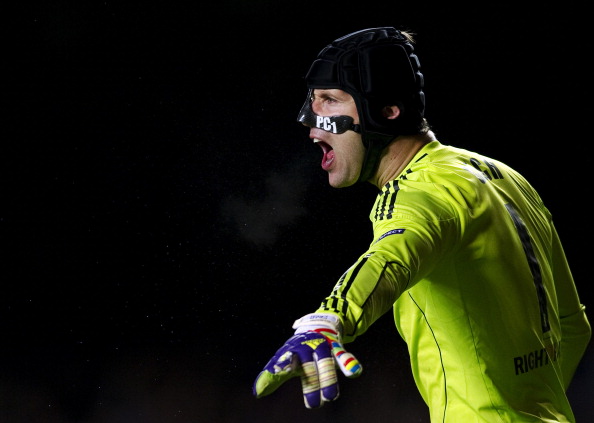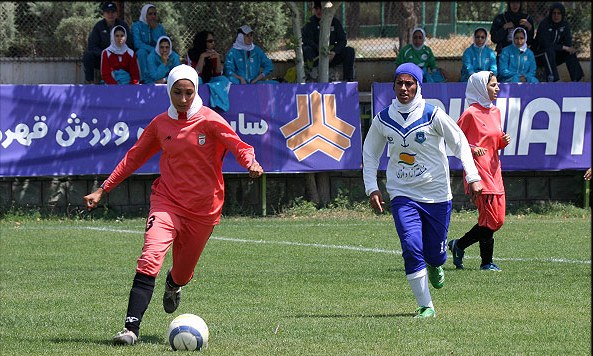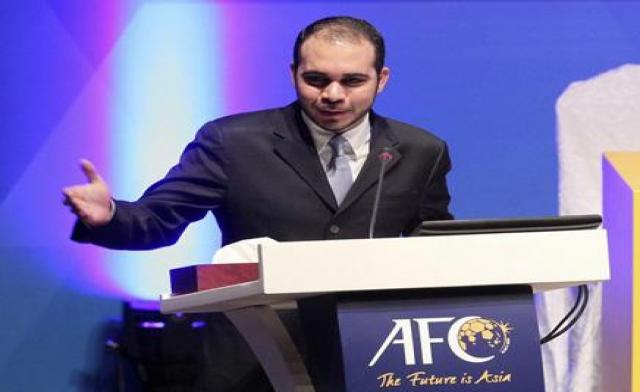By Andrew Warshaw in London
January 13 – FIFA’s newest vice-president, Prince Ali bin Hussein of Jordan, has fiercely defended his controversial proposal to allow female Muslim footballers to wear the hijab during matches, claiming he has the support of many European experts.
Prince Ali plans to put the proposal, endorsed by FIFA’s Executive Committee last month, to the March meeting of the International Fottball Association Board (IFAB), the game’s lawmakers, despite strong opposition from European women’s rights groups who have protested to FIFA President Sepp Blatter.
Vice-president of the Asian Football Confederation, Prince Ali is regarded as a badly-needed modernist within FIFA’s ageing heirarchy.
He insists his determination to lift the ban on the Islamic headscarf is neither discriminatory nor unfair despite claims it would contravene FIFA’s own rules as well as those of the International Olympic Committee (IOC).
Pointing out there has never been any injuries due to wearing the hijab, Prince Ali said his stance had nothing to do with religion.
“This is a cultural issue, not a religious one,” Prince Ali said in an interview with insideworldfootball.
“You have players with face masks like Petr Cech (pictured), you have players who wear headbands.

“There is nothing religiously symbolic about covering your head.”
Last June, Iran forfeited an Olympic London 2012 women’s qualifer against Jordan when officials refused to allow the team to wear Islamic headscarves because it violated the required dress code. Three players on Jordan’s team also wanted to wear hijab.
Prince Ali acknowledged that dress code respect had to work both ways.
“If a team goes to a country where players do cover the heads, that host country has to respect the right of the visitors not to,” he said.
“All I’m saying is let there be mutual respect.”
Opposition groups say the idea that the hijab is a cultural rather than a religious is preposterous but Prince Ali is confident he can win his fight in March – provided FIFA’s majority representation with the IFAB stick with him.
“I know there are certain people who have ingrained ideas about things but it’s very important to embrace women’s football,” he said.
“After all, 15 per cent of FIFA’s development budget goes to women’s football.
“I want to find a solution whereby a huge portion of the population are able to play the game.”
Prince Ali, who was here this week to meet with English Football Association officials on a number of issues, claims he only put forward his recommendation once he had gained agreement from the entire spectrum of global opinion.
insideworldfootball has learned that last October, experts from across the world, including FIFA’s chief medical official, Michel D’Hooghe of Belgium, and two representatives of the English Football Association, were invited by the Asian Football Development Project (AFDP) – a non-profit commission founded by Prince Ali – to debate the issue in Amman.
None of them, it is understood, opposed his ideas — provided safety issues were factored into new breathable sports-friendly designs such as velcro replacing the traditional hijab pin around the neck.

Prince Ali refutes the suggestion that he is breaking official dress codes.
Law 4 of FIFA’s Laws of the Game states that protective equipment such as headgear and facemasks are permitted as long as they are not considered dangerous.
Supporters of the hijab say the physiological, psychological and social benefit of women wearing the hijab far outweigh the risk of injury.
“FIFA’s motto is For the Good of the Game,” said Prince Ali.
“That means everybody.
“If FIFA ever wants to be viewed as serving the world, they have to provide the same opportunities for everyone.
“If they don’t, they don’t the right to that claim.”
Contact the writer of this story at zib.l1745283642labto1745283642ofdlr1745283642owedi1745283642sni@w1745283642ahsra1745283642w.wer1745283642dna1745283642
Related stories
January 2012: French groups protest FIFA plan to lift ban on hijab
December 2011: Proposal to lift ban on hijab to be put forward to football rule-makers
November 2011: FIFA vice-president Al Hussein to review hijab rule at Executive Committee meeting
October 2011: FIFA vice-president Al Hussein moves to allow hijabs in the game
June 2011: Iran in new London 2012 row after women’s footballers banned because of dress

